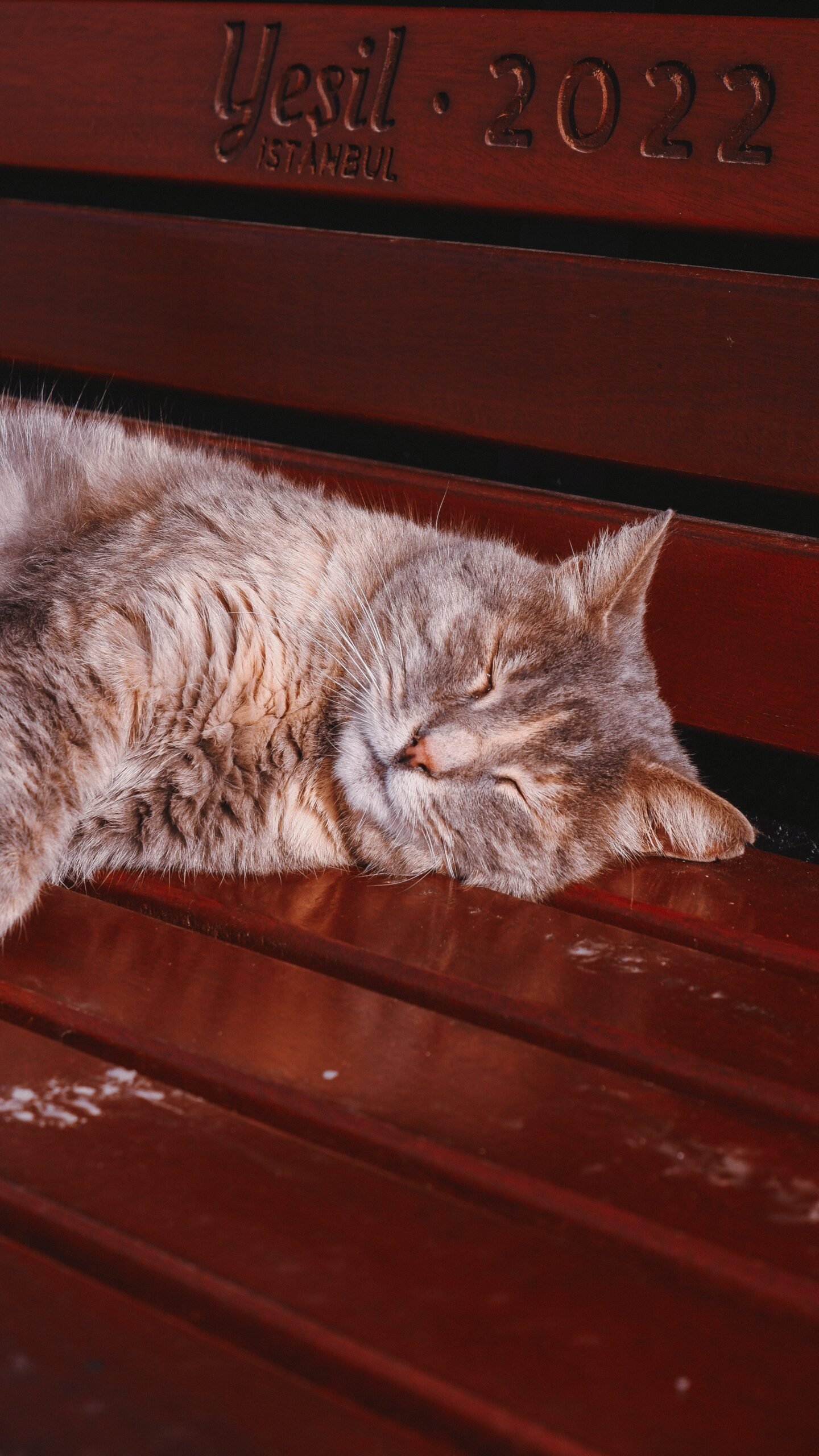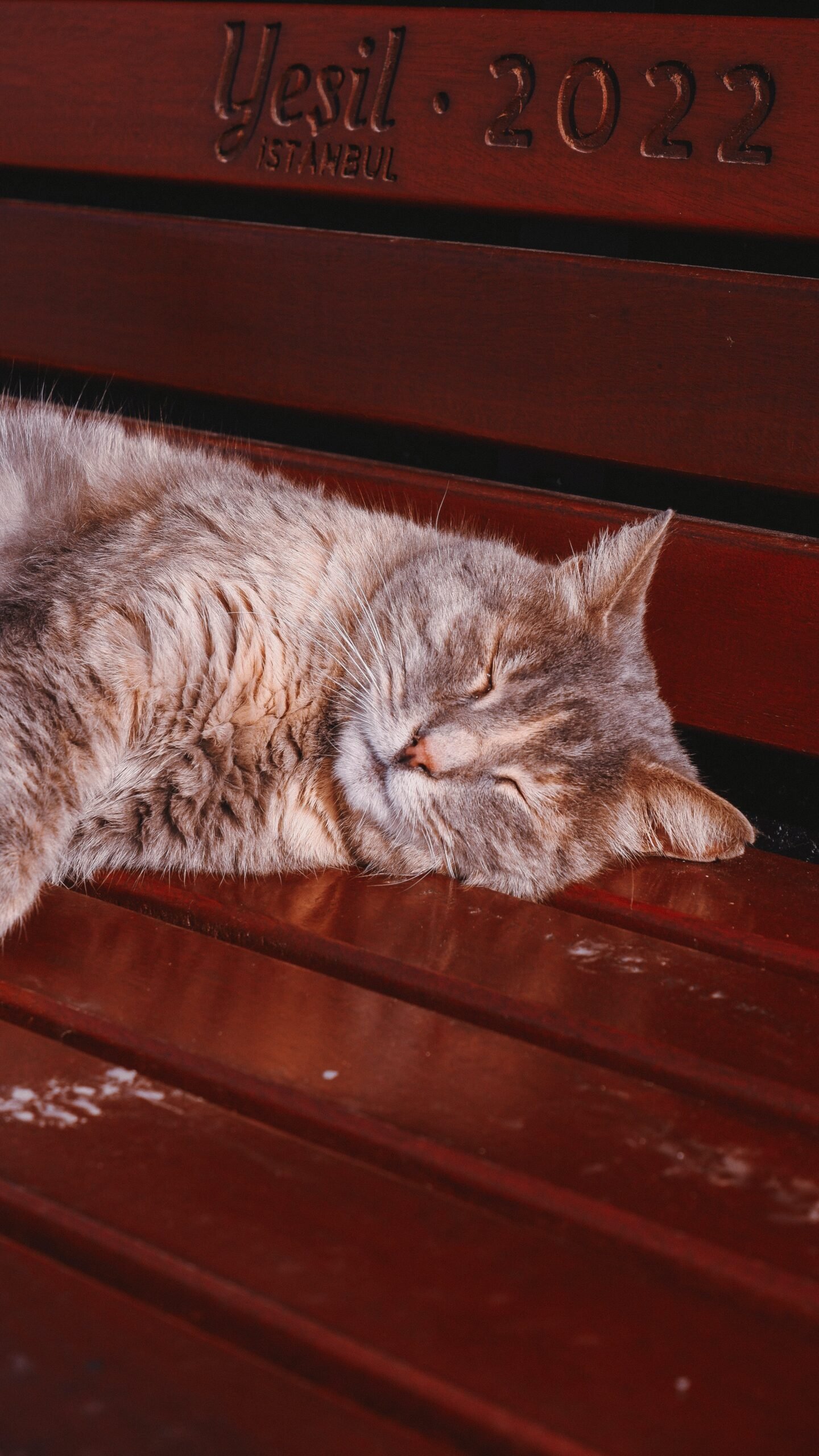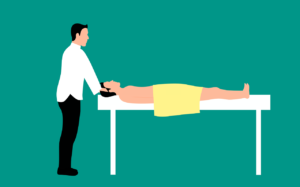
Are you a senior struggling to get a good night’s sleep? Look no further! In this comprehensive guide, we will explore various sleep aid options specifically designed for seniors, helping you find the best solution to enhance your sleep quality. From natural remedies to over-the-counter medications, we will cover it all. Say goodbye to restless nights and hello to rejuvenating sleep with our ultimate guide!

Understanding the Importance of Sleep for Seniors
The impact of sleep on seniors’ health and well-being
Sleep plays a crucial role in maintaining good health and well-being for individuals of all ages, but its significance becomes even more pronounced as we age. For seniors, quality sleep is essential for physical and mental health, as well as overall cognitive function. Adequate sleep promotes better concentration, memory, and decision-making abilities, making it easier to navigate daily tasks and effectively manage any underlying medical conditions.
Research has shown that seniors who consistently get enough sleep have a lower risk of developing chronic conditions such as cardiovascular disease, diabetes, and obesity. Additionally, adequate sleep is essential for the body’s immune system to function optimally, helping seniors ward off infections and promote faster healing. Overall, good sleep is the foundation for healthy aging and maintaining a high quality of life.
Common sleep problems in seniors
Though sleep is important for everyone, seniors often encounter various sleep problems that can significantly impact their overall well-being. Some common sleep issues experienced by seniors include insomnia, sleep apnea, restless leg syndrome, and periodic limb movement disorder. These conditions can cause difficulty falling asleep or staying asleep throughout the night, resulting in daytime fatigue, irritability, and diminished cognitive function.
Furthermore, factors such as chronic pain, medication side effects, and certain medical conditions prevalent in older adults can contribute to poor sleep quality. It is essential to identify and address these sleep disturbances to help seniors achieve restful sleep and improve their overall health and quality of life.
How sleep aids can improve seniors’ sleep quality
Sleep aids can be beneficial for seniors experiencing sleep difficulties. By promoting relaxation and improving sleep quality, these aids can help seniors fall asleep faster, stay asleep longer, and wake up feeling refreshed. However, it is important to note that sleep aids should be used judiciously and under the guidance of a healthcare professional.
The right sleep aid can ease the burden of sleep disturbances and help seniors establish healthy sleep patterns. Whether it is a prescription medication, over-the-counter sleep aid, natural remedy, or melatonin supplement, finding the right sleep aid tailored to an individual’s unique needs can significantly improve their overall sleep quality and enhance their overall well-being.
Different Types of Sleep Aids for Seniors
Prescription sleep aids
Prescription sleep aids are medications that require a doctor’s prescription and are generally recommended for short-term use. These medications work by targeting specific areas in the brain to promote relaxation and induce sleep. Commonly prescribed sleep aids for seniors include benzodiazepines, non-benzodiazepine sedatives, and tricyclic antidepressants.
It is important for seniors to consult with a healthcare professional before using prescription sleep aids. This will ensure that the chosen medication is suitable, considering any underlying medical conditions, medications, and potential side effects or risks.
Over-the-counter (OTC) sleep aids
OTC sleep aids are readily available without a prescription and can be an option for seniors who prefer self-management of their sleep difficulties. These sleep aids typically contain antihistamines, which have a sedative effect that helps induce sleep. However, it is crucial to follow dosage instructions and consult a healthcare professional if sleep problems persist or worsen.
While OTC sleep aids may be effective for short-term use, they should not be relied upon as a long-term solution for chronic sleep problems. Seniors should use these aids cautiously, ensuring they are safe and appropriate given their individual circumstances, medical conditions, and medications.
Natural sleep aids
Natural sleep aids encompass a wide range of non-medical approaches, techniques, and remedies that promote relaxation and improve sleep quality. These methods often focus on addressing underlying factors such as stress, anxiety, and poor sleep habits. Natural sleep aids for seniors may include relaxation techniques like meditation and deep breathing exercises, creating a conducive sleep environment, and adhering to a consistent sleep schedule.
Additionally, certain lifestyle changes, such as regular exercise, avoiding caffeine and electronic devices before bedtime, and maintaining a healthy diet, can significantly contribute to better sleep. While natural sleep aids are generally safe, seniors should still consult with a healthcare professional to ensure they are suitable and compatible with any existing medical conditions or medications.
Melatonin supplements
Melatonin is a hormone naturally produced by the body’s pineal gland, which helps regulate sleep-wake cycles. Melatonin supplements are used to adjust and regulate sleep patterns, particularly for individuals experiencing disruptions in their circadian rhythms, such as jet lag or shift work.
For seniors, melatonin supplements can help promote a more consistent sleep-wake schedule, aiding in falling asleep and staying asleep. However, it is important to use melatonin supplements cautiously and in consultation with a healthcare professional. They should be used according to appropriate dosages for seniors, to minimize potential side effects and avoid interactions with other sleep aids or medications.
Herbal sleep remedies
Herbal sleep remedies, derived from plant-based ingredients, have been used for centuries to promote relaxation and improve sleep. Some commonly used herbal remedies include chamomile, valerian root, lavender, passionflower, and lemon balm. These herbs are often available as teas, supplements, or essential oils.
While herbal sleep remedies may provide benefits for some individuals, it is important to note that their effectiveness and safety can vary. Seniors should be cautious while using herbal sleep remedies, as they can have potential side effects and interact with certain medications. Seeking guidance from a healthcare professional is advisable to ensure the appropriate herbal remedy is chosen and used safely.

Considerations when Choosing a Sleep Aid
Potential side effects and risks
When considering sleep aids, it is essential to evaluate potential side effects and risks associated with each option. Different sleep aids may have particular side effects such as drowsiness, dizziness, impaired coordination, and memory problems. Seniors should discuss possible risks with their healthcare professional to ensure the chosen sleep aid is suitable and safe for their individual circumstances.
Drug interactions
Seniors often take multiple medications to manage various health conditions, making it crucial to consider potential drug interactions with sleep aids. Certain sleep aids may interact adversely with prescription medications, causing unwanted side effects or reduced effectiveness. Consulting a healthcare professional will help identify any potential interactions and determine the most appropriate sleep aid for seniors.
Long-term versus short-term use
The duration for which a sleep aid is intended to be used should factor into the decision-making process. Some sleep aids are designed for short-term use, providing temporary relief for acute sleep difficulties. Others may be suitable for long-term use, targeting chronic sleep problems. Seniors should carefully consider the duration recommended and consult with a healthcare professional to determine the most appropriate sleep aid for their specific needs.
Individual preferences and comfort
Choosing a sleep aid that aligns with individual preferences and comfort is crucial for its effectiveness. Factors such as taste, form (e.g., pill, liquid, tea), and ease of use can greatly impact a senior’s willingness to adhere to a sleep aid regimen. Considering personal preferences can help ensure a sleep aid is integrated seamlessly into a senior’s daily routine, enhancing their overall sleep experience.
Existing medical conditions and medications
Seniors should always consider their existing medical conditions and medications before choosing a sleep aid. Some health conditions, such as liver or kidney disease, may require specific precautions or limit the options available. Similarly, certain medications may have interactions or contraindications with specific sleep aids. Consulting with a healthcare professional is vital to assess these factors and choose the most suitable sleep aid for seniors.
Prescription Sleep Aids for Seniors
Commonly prescribed medications
Prescription sleep aids commonly used for seniors include sedatives, such as benzodiazepines (e.g., temazepam, diazepam), non-benzodiazepine sedatives (e.g., zolpidem, eszopiclone), and tricyclic antidepressants (e.g., amitriptyline, doxepin). These medications work by targeting certain brain receptors to induce relaxation and facilitate sleep.
While prescription sleep aids can be effective in managing sleep disturbances, they should be used cautiously and for short-term use only. Seniors should seek guidance from a healthcare professional to ensure the right medication and dosage are prescribed, considering their individual needs and any potential risks/side effects.
Effectiveness and potential risks
Prescription sleep aids can be highly effective in improving sleep quality and facilitating better rest for seniors. However, these medications also come with potential risks and side effects, such as drowsiness, dizziness, impaired coordination, memory problems, and the risk of dependence or addiction. Seniors should be aware of these potential risks and weigh them against the potential benefits before deciding to use prescription sleep aids.
Consulting with a healthcare professional
It is essential for seniors to consult with a healthcare professional before using prescription sleep aids. A healthcare professional can assess the underlying sleep problems, existing medical conditions, and any potential drug interactions. They can determine if prescription sleep aids are necessary, recommend the most appropriate option, and provide guidance on the safe and effective use of these medications.

Over-the-Counter Sleep Aids for Seniors
Types of OTC sleep aids
OTC sleep aids typically contain sedating antihistamines, such as diphenhydramine or doxylamine, which are commonly found in allergy medications. These antihistamines have a sedative effect that helps induce sleep. OTC sleep aids often come in various forms, such as tablets, capsules, and liquids, catering to individual preferences.
Pros and cons of OTC sleep aids
One advantage of OTC sleep aids is their accessibility and convenience. They are readily available at most pharmacies and do not require a prescription. OTC sleep aids can be a viable option for short-term use and managing occasional sleep difficulties.
However, it is important to consider the potential cons of OTC sleep aids. Their effectiveness may vary among individuals, and prolonged use may lead to reduced efficacy or habituation. Additionally, such sleep aids can have side effects like daytime drowsiness, dry mouth, blurred vision, and urinary retention. Seniors should carefully assess the pros and cons, and it is advisable to consult with a healthcare professional if sleep problems persist or worsen.
Safe usage guidelines
When using OTC sleep aids, seniors should strictly follow the recommended dosage instructions and safety guidelines provided on the packaging. It is essential to avoid exceeding the recommended dose, as higher doses can increase the risk of side effects. Seniors should also read the warnings and precautions section to ensure the sleep aid is appropriate considering any existing medical conditions or medications.
Recommendations from healthcare professionals
While OTC sleep aids are easily accessible, seniors are encouraged to consult with a healthcare professional for proper guidance. Healthcare professionals can provide personalized recommendations based on individual circumstances and ensure the chosen sleep aid is both safe and effective. Seeking professional advice helps seniors make informed decisions about managing their sleep difficulties.
Natural Sleep Aids for Seniors
Non-medical approaches for improving sleep
Natural sleep aids encompass a variety of non-medical approaches to promote relaxation and improve sleep quality without the use of prescription medications. These approaches focus on addressing underlying factors that contribute to sleep disturbances, such as stress, anxiety, and poor sleep habits.
Relaxation techniques
Numerous relaxation techniques can help seniors unwind and prepare their bodies for sleep. These techniques include deep breathing exercises, progressive muscle relaxation, guided imagery, and mindfulness meditation. Engaging in these practices before bedtime can help calm the mind and promote a restful sleep.
Lifestyle changes for better sleep
Seniors can make certain lifestyle changes to improve sleep quality. Regular physical exercise, such as walking or gentle yoga, can help reduce stress and promote better sleep. Avoiding stimulating activities close to bedtime, creating a comfortable sleep environment, and adhering to a consistent sleep schedule are other lifestyle changes that can significantly contribute to better sleep.
Dietary supplements and vitamins
Certain dietary supplements and vitamins have been associated with better sleep quality. For example, magnesium and calcium supplements can promote relaxation and aid in falling asleep. Additionally, herbal supplements like valerian root and chamomile are popular for their calming effects. However, seniors should consult with a healthcare professional before incorporating any dietary supplements or vitamins into their sleep routine, to ensure safety and effectiveness.
Alternative therapies
Several alternative therapies, such as acupuncture, aromatherapy, and massage, have been explored for their potential to improve sleep quality. These therapies focus on stimulating specific pressure points, using essential oils, or physical manipulation to induce relaxation and alleviate sleep difficulties. While alternative therapies can be beneficial for some individuals, seniors should consult with a healthcare professional to assess their suitability and potential benefits.
Understanding Melatonin as a Sleep Aid
What is melatonin and how does it work?
Melatonin is a hormone naturally produced in the pineal gland of the brain. It helps regulate the sleep-wake cycle and is influenced by exposure to light. Melatonin levels rise in the evening, signaling the body to prepare for sleep, and decrease in the morning to promote wakefulness.
Melatonin supplements are available to help adjust and regulate sleep patterns, particularly for individuals experiencing disruptions in their circadian rhythms, such as jet lag or shift work. These supplements provide synthetic melatonin, which mimics the effects of naturally occurring melatonin in the body.
Benefits and potential side effects
Melatonin supplements can be beneficial for seniors by helping regulate sleep patterns and improving sleep quality. They are generally considered safe and effective when used appropriately. However, potential side effects may include daytime drowsiness, dizziness, headache, and transient hormonal changes. Seniors should consult with a healthcare professional for advice on appropriate dosages and to understand potential side effects.
Appropriate dosages for seniors
The appropriate dosage of melatonin for seniors can vary based on individual needs and circumstances. It is generally recommended to start with a low dose, typically between 0.5mg and 1mg, taken about an hour before bedtime. If necessary, the dosage can be adjusted under the guidance of a healthcare professional.
Interaction with other sleep aids or medications
Seniors should exercise caution when using melatonin supplements in conjunction with other sleep aids or medications. Potential interactions can occur, affecting the effectiveness or safety of both substances. It is crucial to consult with a healthcare professional to ensure there are no contraindications or adverse effects from combining melatonin with other sleep aids or medications.
Exploring Herbal Sleep Remedies
Common herbal remedies for sleep
Several herbal remedies have been traditionally used to promote relaxation and improve sleep quality. Common herbal sleep remedies include chamomile, valerian root, lavender, passionflower, and lemon balm. These herbs are often available as teas, supplements, or essential oils.
Effectiveness and safety considerations
While herbal sleep remedies have been used for centuries, their effectiveness can vary among individuals. Scientific evidence supporting their sleep-promoting effects is limited, and some herbs may have a placebo effect. It is important for seniors to be cautious when using herbal sleep remedies and recognize that they may not work for everyone.
Regarding safety, herbal remedies are generally considered safe when used as directed. However, certain herbs may have potential side effects or interactions with medications. It is advisable for seniors to consult with a healthcare professional for guidance on using herbal sleep remedies safely.
Dosage recommendations
The appropriate dosage of herbal sleep remedies can vary depending on the specific herb and individual needs. It is crucial to follow the recommended dosage instructions provided on the product packaging or consult with a healthcare professional for personalized dosage recommendations.
Consulting with a healthcare professional
Seniors should consult with a healthcare professional before incorporating herbal sleep remedies into their routine. A healthcare professional can provide guidance on the appropriate herb to use, dosage instructions, and any potential interactions or side effects to be aware of. This ensures the safe and effective use of herbal sleep remedies.
Tips for Choosing the Best Sleep Aid for Seniors
Consulting with a healthcare professional
Before choosing a sleep aid, seniors should consult with a healthcare professional. A healthcare professional can evaluate their specific sleep problems, existing medical conditions, and any potential interactions or contraindications with medications. Seeking professional advice ensures that the chosen sleep aid is appropriate and safe for seniors.
Considering individual needs and preferences
Choosing the best sleep aid involves considering individual needs and preferences. Seniors should reflect on their sleep patterns, the severity of their sleep difficulties, and what they hope to achieve with a sleep aid. Additionally, considering factors such as taste, form, ease of use, and any personal preferences can contribute to a positive sleep aid experience.
Reading customer reviews and ratings
Reading customer reviews and ratings can provide valuable insights into the effectiveness and experiences of others who have used a specific sleep aid. Seniors can gain useful information regarding the reliability, quality, and potential side effects of sleep aids through these reviews. However, it is essential to remember that individual experiences may vary, and professional guidance is still crucial.
Checking for potential interactions and side effects
Before choosing a sleep aid, seniors should research and understand potential interactions and side effects associated with each option. This information can help assess the suitability and safety of a sleep aid, particularly in relation to existing medical conditions or medications. Awareness of potential risks empowers seniors to make informed decisions.
Trialing different sleep aids
It may be necessary to try different sleep aids to find the most effective one. Seniors may have unique responses to sleep aids, and what works for one individual may not work for another. By trialing different options, seniors can identify the sleep aid that best suits their specific needs and provides the desired benefits.
Additional Resources for Sleep Aid Information
Websites and online forums
Websites and online forums dedicated to sleep aids and senior health provide a wealth of information and resources. Reputable websites such as the National Sleep Foundation, American Sleep Association, and Mayo Clinic are excellent sources to broaden knowledge about sleep aids. Online forums also offer platforms for individuals to share their experiences and insights.
Books and publications
Books and publications written by sleep experts or healthcare professionals can provide in-depth information about sleep aids and effective sleep strategies. These resources often offer comprehensive guidance, research-based information, and practical tips to help seniors better understand and manage their sleep difficulties.
Support groups and organizations
Support groups and organizations focused on senior health or sleep disorders can be valuable resources for sleep aid information. These groups offer opportunities to connect with others who share similar experiences, exchange insights, and seek support on navigating sleep difficulties.
Sleep clinics and specialists
Sleep clinics and specialists are specifically trained in diagnosing and treating sleep disorders. Consulting with a sleep specialist can provide personalized insight into sleep aids suitable for seniors. Sleep clinics may also offer sleep studies or provide alternative treatment options for managing sleep problems.
In conclusion, understanding the importance of sleep for seniors is crucial for maintaining their health and well-being. Sleep aids can play a significant role in improving sleep quality and addressing common sleep problems. By considering the different types of sleep aids available, potential risks and benefits, and consulting with healthcare professionals, seniors can find the best sleep aid to suit their individual needs. It is important to remember that sleep aids should be used judiciously and as part of wider strategies for promoting overall sleep health.







